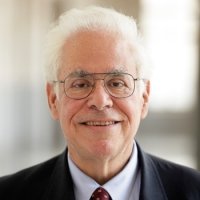National Experts Advocate Four Points in Regional and Global Strategy
Washington--Today the Wilson Center released a report from its Global Energy Forum highlighting key energy and climate trends, and advocating four points in a regional and global strategy keyed to the Middle East and the UN Climate Change Conference (COP-21) in Paris at the end of this month. Convening initially on September 21, the Global Energy Forum is led by eight national experts on energy and climate policy.
View the full report here.
On energy trends, US Energy Information Administration (EIA) administrator Adam Sieminski noted that the 2016 market-implied crude oil price band was unusually wide, between $25 and $100 per barrel. Both he and Robert Johnston, CEO of the Eurasia Group (EG) consultancy, said that it will take time for energy markets to rebalance above $50 per barrel, with price recovery not to be expected until late 2016 (EIA) or 2017 (EG). Johnston pointed to over $200 billion in delayed or cancelled new global oil and gas spending because of low energy prices, and a “demand-led rebalancing of the global oil markets is much more likely than a collapse of supply.”
On the Middle East, the first strategic point, regional energy expert Amy Myers Jaffe, Executive Director of Energy and Sustainability at University of California, Davis, joined by energy analyst Jareer Elass, made clear that one cannot simply analyze individual Middle East oil shortfalls, as in the case of Iraq and Libya. Rather, it is necessary to assess the cumulative impact of shortfalls, augmented by the increased infrastructure targets and other risks resulting from the Islamic State and regional instability as a whole.
On global climate, the second strategic point, David Victor, professor at the School of Global Policy and Strategy at the University of California, San Diego, underlined the need for a revolutionary energy agenda to contain temperature increases below 2 degrees Celsius. Major collaboration involving new technologies and advanced technology players – to a degree “so far unprecedented in most areas of the modern economy” – will be needed to achieve major changes including large-scale carbon capture and storage, natural gas substitution for coal, and marked increases in non-fossil energy sources.
Strategic petroleum reserve (SPR) policy is the third strategic point. A situation of relative energy abundance can devolve into one of relative shortages, making emergency response coordination as timely as ever – as pointed out by David Goldwyn, president of Goldwyn Global Strategies LLC, in his call for a flexible and modernized SPR policy.
Fourth, on global policy, Goldwyn and Wilson Center Public Policy Fellow and Energy Lead Jan Kalicki called for steps toward a “global energy security system” with seven building blocks: more cohesive national strategies, integration of energy with environmental goals, global shale production, competitive gas markets, a stronger IEA emergency response system, a more robust strategy to address energy poverty, and protection for global sea lanes.
Julia Nanay, Principal of Energy Ventures LLC, describes these and other steps in her Rapporteur’s report on the September 21 meetings which is included in the Wilson Center report.
Notes to Editors:
1. The Wilson Center provides a strictly nonpartisan space for the worlds of policymaking and scholarship to interact. By conducting relevant and timely research and promoting dialogue from all perspectives, it works to address the critical current and emerging challenges confronting the United States and the world.




